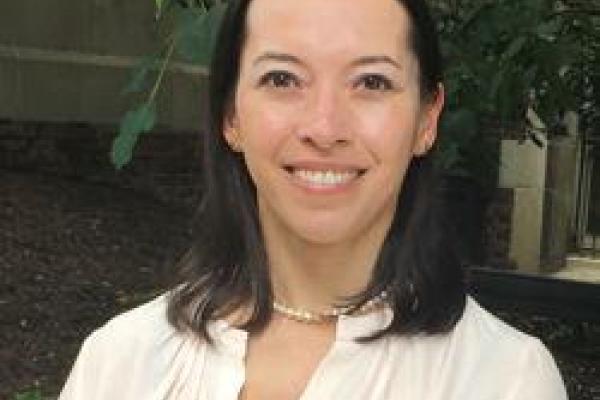
The Institute for Chinese Studies is pleased to co-sponsor the Graduate Students of East Asian Languages and Literatures' invited speaker:
Wendy Swartz
Professor of Chinese Literature
Affiliate Faculty Member of Comparative Literature
Rutgers University
Lecture: "Theory of Literary Creativity in Early Medieval China"
Flyer: (to be available later)
Abstract: Literary thought—both theory and criticism—is the prerequisite for situating literature and its function in a society, especially one that viewed letters as its preeminent civilizing enterprise. Over the course of early and medieval Chinese history, the character wen 文came to stand for the dynastic enterprise defined as a civilization of culture, scholarship, and literature. The arc and substance of a literary tradition are not merely, or even mostly, penned by authors, but are no less equally inscribed by critical readers who articulate assumptions and expectations, promote certain values and standards of taste, and select the terms by which other readers interpret an author or work. Literary critics helped to found and maintain this civilization through their transhistorical preservation of a wen that shaped Chinese literature’s meaning and memory.
In one of the greatest works of meta-literature in Chinese history, “Rhapsody on Literature” 文賦, Lu Ji陸機 (261-303), not only sets forth theories and practices of literary composition, but also candidly discusses the various fearsome and obsessive challenges that concern the writer. These challenges range from the difficulty in finding at times le mot juste, the occasional disconnection between idea formation and articulation, to the dread of inadvertently imitating or duplicating a prior work. The last problem is especially revelatory of the angst-generating literary contradictions of early medieval Chinese society. While originality was not openly demanded in a labor that assumes extensive reading as a prerequisite for writing, it was nevertheless somehow expected to emerge as the author goes along conforming to past models and citing predecessors as the cultural norm expects. This lecture will explore how Lu Ji traces the process of the creative act and the questions his work of meta-literature raises about reading and writing, originality and tradition, and conception and representation.
Bio: Dr. Swartz is the Director of Graduate studies and Professor of Chinese Literature at Rutgers University. She is the author of Reading Philosophy, Writing Poetry: Intertextual Modes of Making Meaning in Early Medieval China (Harvard University Asia Center, 2018) and Reading Tao Yuanming: Shifting Paradigms of Historical Reception (427-1900) (Harvard University Asia Center, 2008). She is the principal editor of Early Medieval China: A Sourcebook (Columbia University Press, 2014). The first of its kind, this volume presents a broadly-based selection of important texts from this formative period in the disciplines of literature, historiography, art history, and religion. It aims to provide a new organization of texts and new ways of conceptualizing the period, making available many texts for the first time in English, along with critical scholarship written by experts on the various subjects. Early Medieval China was named "Best Reference Title" by Library Journal in March 2015. She is also the principal editor of Memory in Medieval China: Text, Ritual, and Community (Leiden: Brill Press, 2018). The essays collected in this volume investigate various aspects of memory in medieval China (ca. 100-900 CE) as performed in various genres of writing, from poetry to anecdotes, from history to tomb epitaphs. They illuminate ways in which the memory of individual persons, events, dynasties, and literary styles was constructed and revised through processes of writing and reading. Professor Swartz is the translator of The Poetry of Xi Kang (De Gruyter, 2017), part of the third volume in the Chinese Humanities Library. She provides the first complete translation in a western language of the poetry and fu of Xi Kang. Most studies and anthologies have focused on Xi Kang's essays, whereas his achievements as a poet writing in the formative years of the Chinese poetic tradition have been largely overlooked. This translation presents the complex, nuanced poetic works of Xi Kang, along with a substantial introduction, explanatory and scholarly notes
Free and Open to the Public
This event is organized by OSU's Graduate Students of East Asian Languages and Literatures (GREALL), and co-sponsored by the Graduate Association of Chinese Linguistics (GACL), with programming funds from OSU's Council on Student Affairs to GREALL and GACL. This lecture is also co-sponsored by the Institute for Chinese Studies, East Asian Studies Center.
